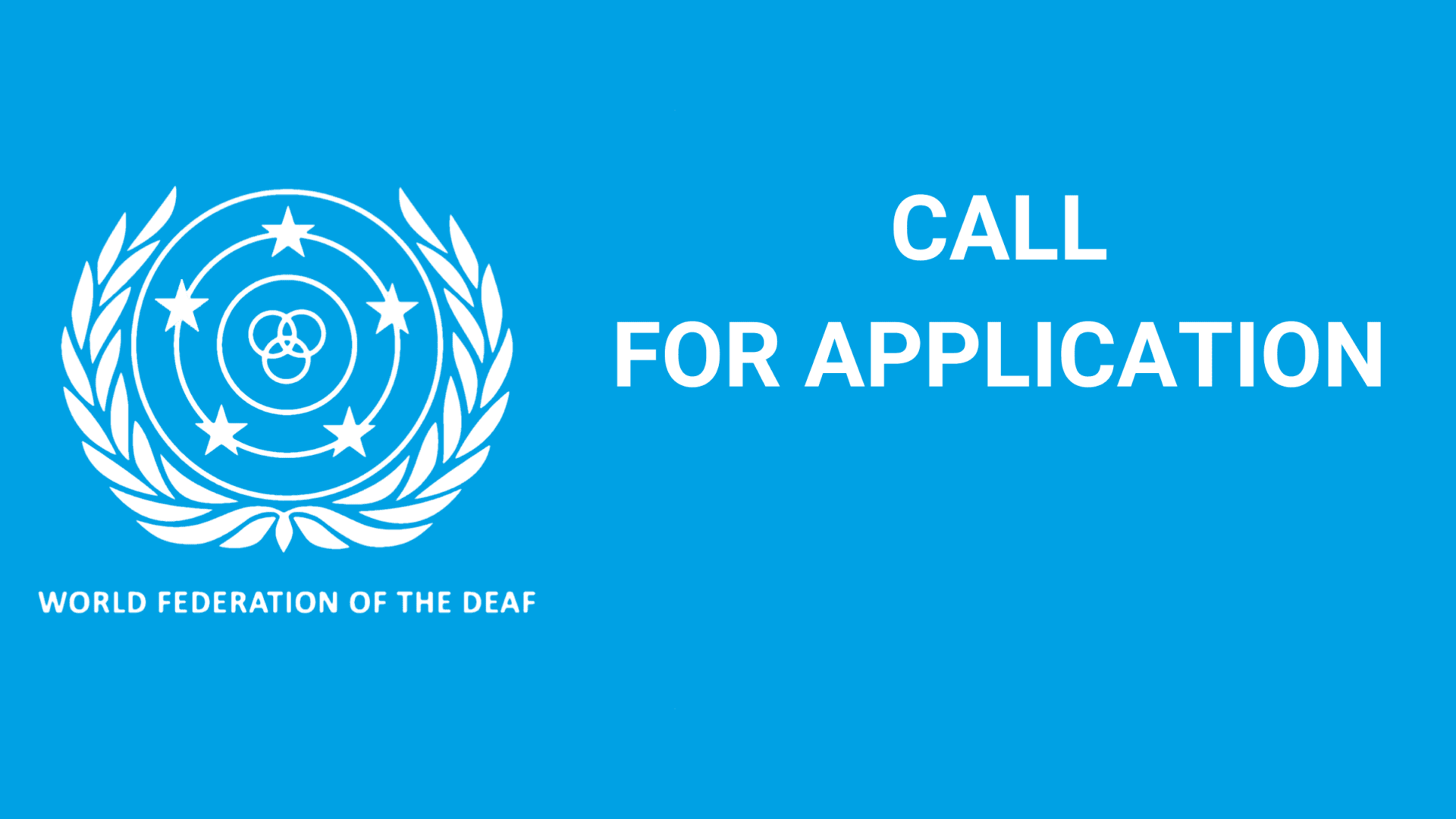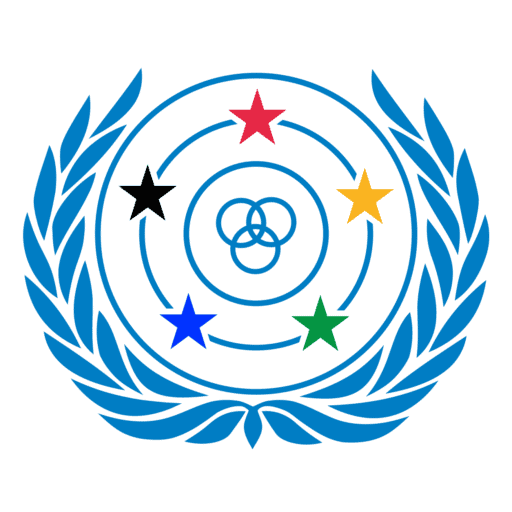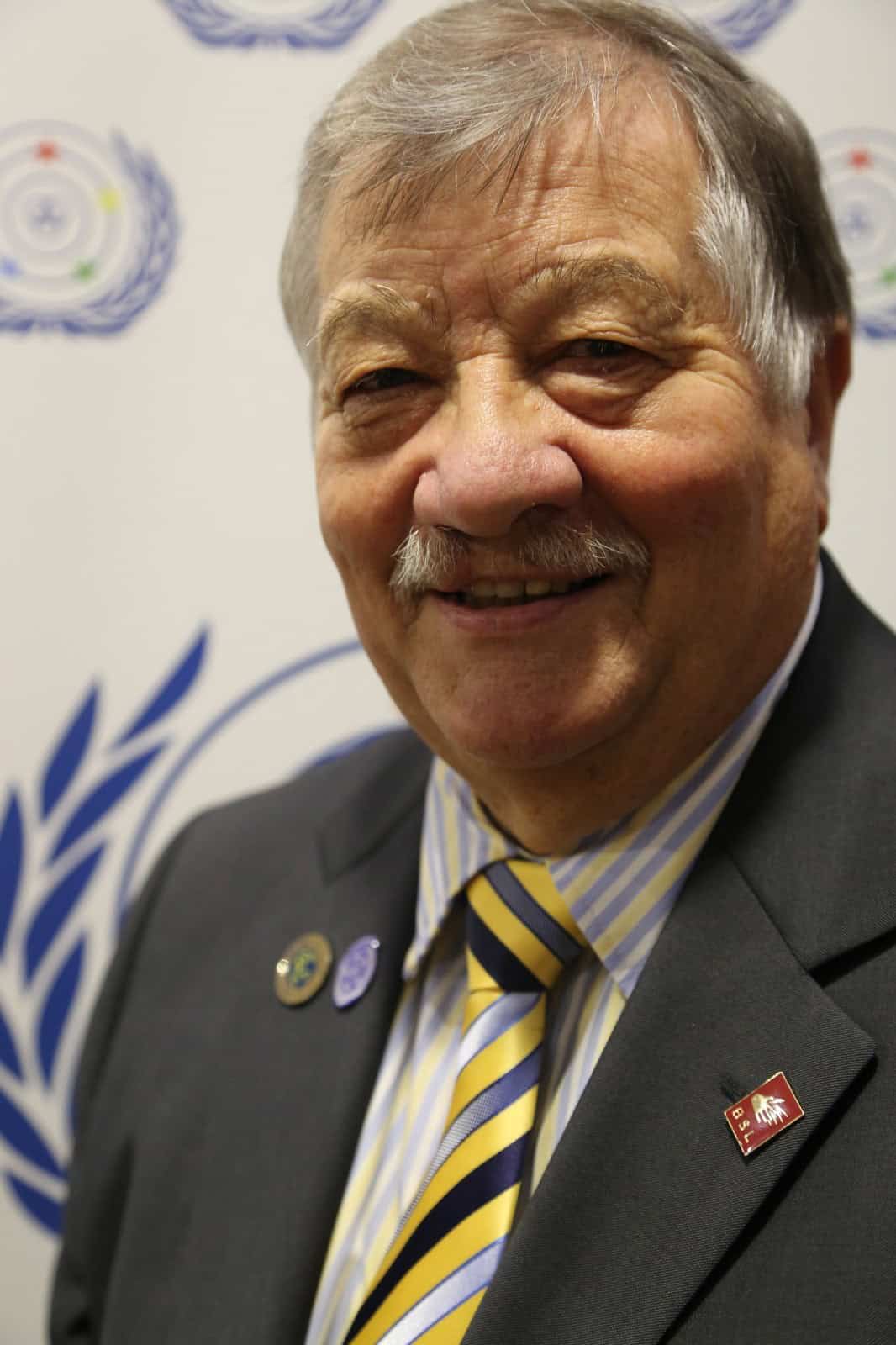22 – 28 September 2014
It is again that time of the year when deaf people around the world gather together with the World Federation of the Deaf (WFD) to celebrate International Week of the Deaf.
International Week of the Deaf is celebrated annually by deaf people worldwide during the last full week of September. WFD’s 133 national associations of the deaf organise events, marches, debates, campaigns and meetings to highlight specific human rights topics that merit attention by local and national governmental authorities, including decision makers, members of the general public and media.
International Week of the Deaf is about gathering together, becoming united, and showing that unity to the rest of the world. This celebration also increases solidarity among deaf people and their allies, and is used as a way to stimulate greater efforts to promote the rights of deaf people.
International Week of the Deaf activities also welcome the involvement of parents and families of deaf people, interpreters, professionals who work with deaf people and government officials.
For last several years the WFD has identified yearly themes for International Week of the Deaf celebrations:
2009 Deaf People’s Cultural Achievements
2010 Deaf Education
2011 Accessibility to Information and Communications
2012 Sign Bilingualism is a Human Right!
2013 Equality for Deaf People
2014 Strengthening Human Diversity
The two dimensions of the theme include promotion of deaf people as part of global human diversity as well as recognition of the diversity and richness of the global deaf community itself.
Strengthening Human Diversity draws upon the basic principles of human rights and respect for all people and diversity with respect to language, race, ethnicity, gender, sexual orientation, socio-economic status, age, physical abilities, religious beliefs, political beliefs, or other ideologies. This theme is about recognising differences as possibilities and assets instead of disabilities that should be changed. It is also about recognising that each deaf individual is unique, with strengths that can make a positive effect on society.
Society needs to be sensitised so that it can better enhance its capacity to take into account diversity and make needed changes. National associations of the deaf can, for example, take concrete steps to raise awareness among government officials, ministers, authorities, responsible persons at workplaces, medical professionals, national education experts etc. on the richness of deaf heritage, culture, and sign languages. The means to achieve such steps to heighten awareness can vary depending on the target group and objectives; this can involve teaching sign language to work colleagues, requesting a meeting with a minister of education, or writing an article for a national newspaper. The ultimate aim would be to obtain recognition of sign languages in all legislation and policies, the right to receive education in sign language, and so forth. National associations of the deaf can also organise seminars and events to train their constituents on deaf people’s rights as bilingual citizens, based on the United Nations Convention on the Rights of Persons with Disabilities (CRPD).
Further, the WFD encourages national associations of the deaf to host fundraising activities or events to support the WFD and its human rights efforts across the globe and persuade individuals to join the WFD as individual members.
Please share your International Week of the Deaf photos and stories with phillipa.sandholm[at]wfd.fi Interested persons can join WFD as an individual member and thus support WFD’s work.



